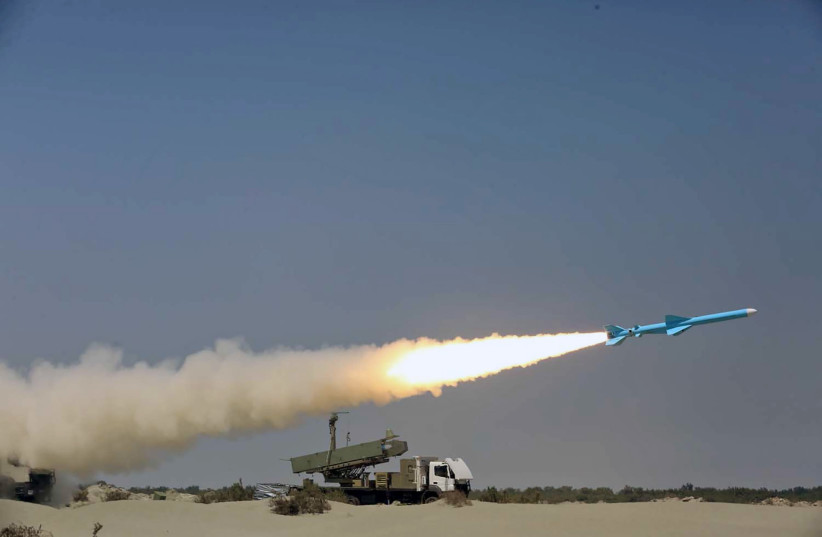The US will not attack Iran in the final weeks of Trump’s Presidency.

There will be no attack by the US on Iran in US President Donald Trump’s remaining seven weeks in office.
But apparently there are many who would like to convince Iran and its proxies that the threat is real.
Their agendas may be varied.
Some in the Trump administration may want to make sure the Islamic Republic does not embarrass him on his way out.
This concern makes sense since Tehran has moved forward following the US presidential election with multiple steps at a new underground advanced centrifuge facility at Natanz.
At the same time, groups in Gaza have fired multiple rounds of rockets on the Israeli south.
All of this could suggest an attempt by Supreme Leader Ayatollah Ali Khamenei to spike the football and try to show he won the nuclear standoff as Trump exits the stage.
To push back against this idea, there have been at least four media leaks or events.
There was the firing of US defense secretary Mark Esper, which many suggested showed that Trump wanted a yes-man in place to take some risky moves, possibly including attacking Iran.
Next, there was a leak to The New York Times that Trump’s national security team was just barely able to convince him not to attack Iran when he asked for options.
This is one of the more bizarre recent leaks.
Was it by those who stopped Trump to try to hedge him in or was it by Iran hawks to try to freak out the ayatollahs?
Further, US Central Command announced that B-52 strategic bombers conducted a “short-notice, long-range mission into the Middle East to deter aggression and reassure US partners and allies.”
The B-52 announcement seemed an obvious dare to the Iranians that not only was Washington ready to respond to any provocations, but the response would be swift.
In addition, there was a wacky leak to Axios by Israeli officials that they had told the IDF to prepare for a potential US attack on Iran, even though they were not expecting one.
Why prepare for something that you expect will not happen?
This is classic psychological warfare by Prime Minister Benjamin Netanyahu to just get the media and the world thinking about the possibility of war to make the Iranians uncertain of what might happen if they misstep.
Scaring the Islamic Republic could help quiet Gaza, slow down progress at Natanz and box in the incoming Biden administration.
Most of the noises coming out of Iran since Joe Biden won the presidential election have been threatening or tepid about negotiations.
Israelis and Trump administration officials may be worried that this could pressure Biden into a weak deal since he has made it clear he wants to offer the ayatollahs a diplomatic path to restore the 2015 nuclear deal in some form.
With regular actions and talk of war, they may both get Khamenei to sound some more reconciliatory messages as well as to make the Biden administration feel like it must project a tougher stance lest it appear too weak in comparison to Trump.
All of this is under the assumption that the idea of the US attacking in the next seven weeks is a paper tiger.
Why should the assumption be that this is an empty bluff?
For all of his zigzagging on some policy issues, Trump has actually been remarkably consistent on avoiding any major military conflict and trying to reduce US military commitments overseas.
His approach has been to threaten and scare, but not actually use military force.
The January assassination of Islamic Revolutionary Guards Corps Quds Force chief Qasem Soleimani was an exception, but this was after Iran killed US forces and helped stage a violent protest on the US Embassy in Iraq.
Even in that case, Trump tried to cover up that dozens of US soldiers were injured in Iran’s counterattack on US bases in Iraq because he wanted to declare victory and move on.
Other than that instance, Trump has consistently avoided using force, including in 2019 when a multi-million dollar US drone was shot down by Iran and when Tehran laid waste to major Saudi oil fields.
If anything, the firing of Esper to take dramatic action was likely about Trump’s major drawdown of troops in Afghanistan and Iraq.
In other words, he wanted to radically reduce US military commitments overseas, not leave office with a new major regional war on his hands.
After all of that, the bluffs may be beneficial.
If Iran and Gaza stand down now and come into negotiations with the Biden administration a bit more admonished, that would mostly be a plus.
It would not be the first time the psychological threat of war was used to make war less likely.
As reported by The Jerusalem Post
